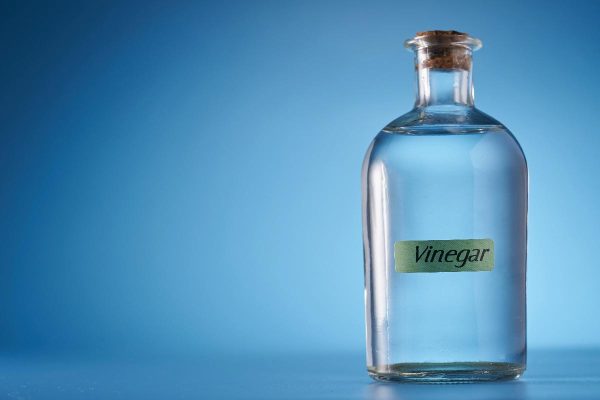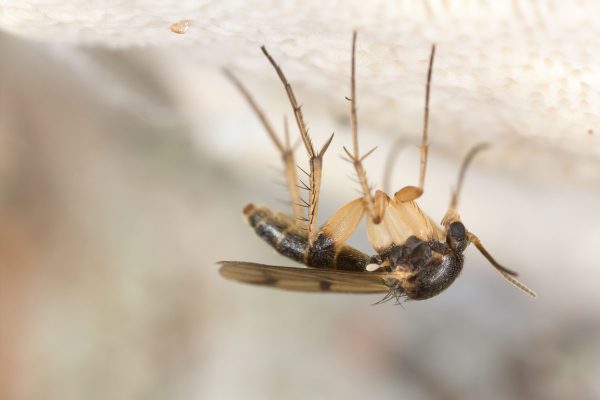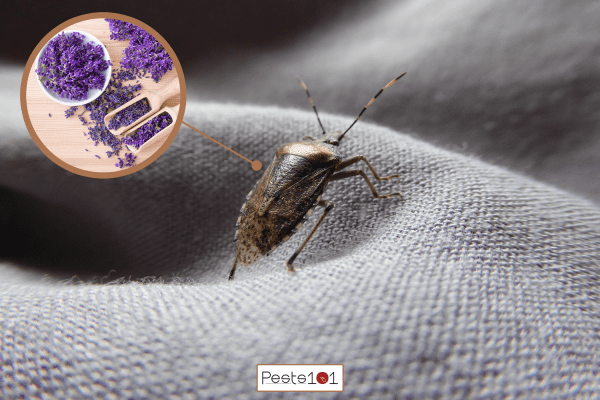Neem oil is one of the safest and most effective insecticides you can use in your house or your garden. Most of us want the non-toxicity of natural pesticides, but we want something that can also easily kill insects as effectively as chemical pesticides. Fortunately, Neem oil offers both advantages, so we have researched the most popular types of Neem oil available today.
Here are neem oil types that are ideal for treating pests:
- Neem Oil Spray
- Neem Oil Soil Drench
- Neem Oil Extract
Neem oil offers a lot of benefits regardless of the type. There are many ways to utilize its ingredients so your home can remain safe and pest-free. Keep reading below to learn more about the variations of Neem oil along with specific instructions on how to use them effectively.
![Neem oil in bottle and neem leaf with twig on wooden background, 3 Types Of Neem Oil [And Common Brands]](https://pests101.com/wp-content/uploads/2022/06/3-Types-Of-Neem-Oil-And-Common-Brands-800x1200.png)
What is Neem Oil?
Neel oil is made of organic material extracted from neem trees. It is easily recognizable with its strong sulfuric scent, and it can be reformulated into granules, spray, dust, and concentrates.
Its active ingredient, Azadirachtin, is widely used to eliminate pests and fungi. Unlike chemical insecticides, they are safer to use around children and pets which makes them a popular choice among households.
Note that although they are less harmful and invasive than chemical sprays, neem oil can be slightly irritating to the eyes and skin, so don't forget to wear gloves and long shirts when treating areas with neem oil.
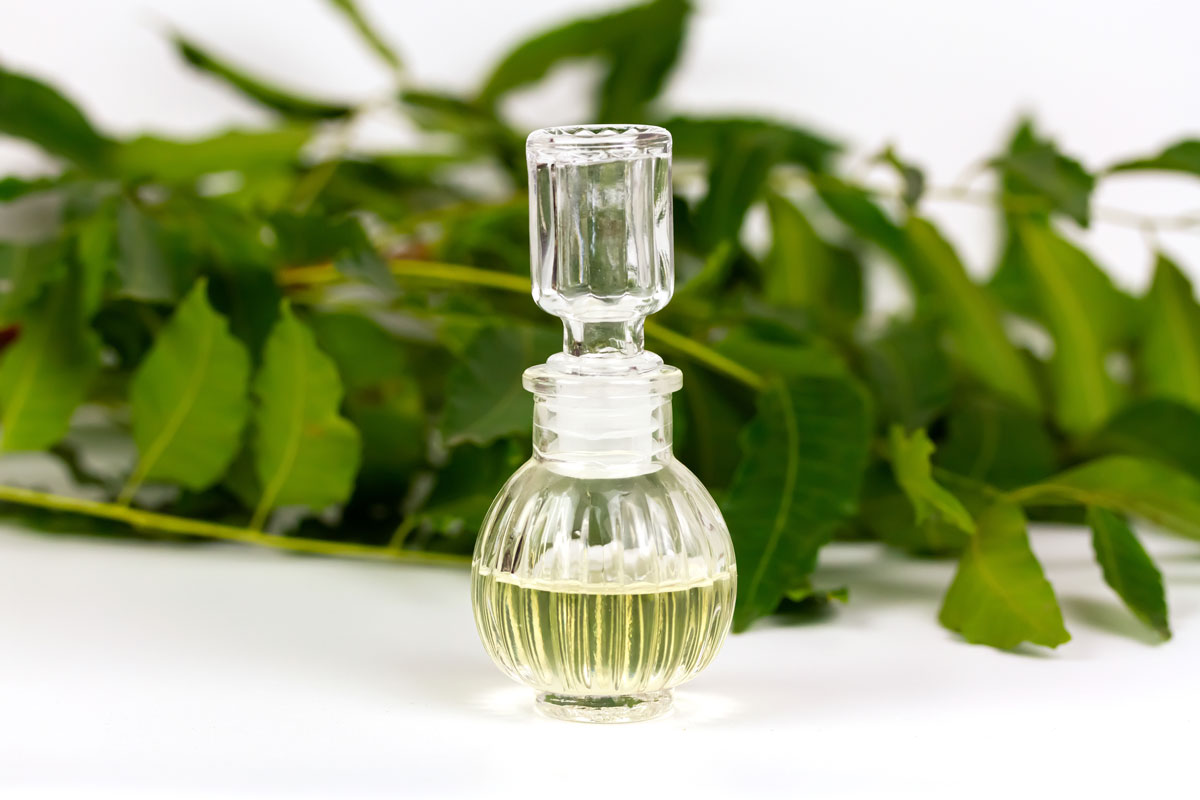
The repelling agent of neem oil also interferes with the reproduction of insects. Once the insect comes in contact with the oil, their hormones are blocked which prevents them from laying and growing eggs. This component makes Neem Oil ideal to be applied in insect nests.
Three Types of Neem Oil
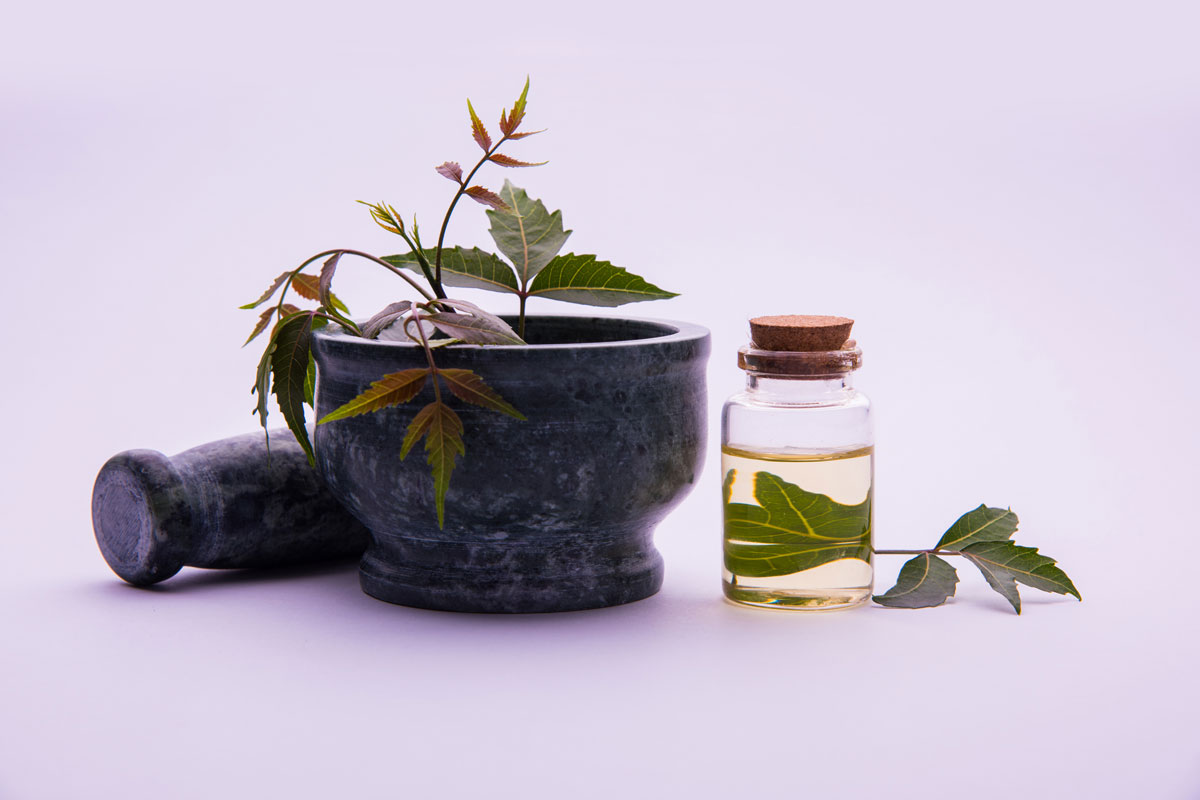
Neem oil can be applied to areas where insects nest, or across the gardens where pests eat up the greenery. There are different formulas of neem oil that could be more suitable for particular areas.
Some of these may need to be combined with other materials, and you'd need to follow instructions carefully about the frequency and time at which to apply them.
Neem oil is biodegradable, so it easily breaks down under sunlight and microbes making it better for the environment, unlike chemical pesticides.
Here are the different types of Neem oil that can benefit your household.
Neem Oil Spray
Ready-to-spray neem oil is widely available on the market. The spray allows you to apply the pesticide on a wider perimeter, which is good for time efficiency. If you don't want a ready-to-spray neem oil, there are soluble ones that come with a spray bottle that you can dilute and spray around your house.
Cold-pressed neem oil can also be mixed with water which you can put inside a spray bottle. This kind of spray is more DIY, but you'll have more control over the content of oil you'll be putting around your space.
- Combine 1 gallon of water with 1 teaspoon of liquid soap. The liquid soap will act as an emulsifier for the neem oil.
- Add one to two tablespoons of neem oil into the soap and water solution, depending on your preference.
- Fill a spray bottle with the solution.
- If you're using it on plants, make sure to spray only a small section to check if the plants won't be affected.
- Wait for 24 hours, and if the plants remain healthy, spray it on the rest of the plants.
- Spray the solution every two weeks, but do it weekly if you're dealing with a heavy infestation.
See this neem oil spray on Amazon.
Neem Oil Soil Drench
The neem oil soil drench can be an effective and biodegradable pesticide on your fruit trees and plants. Neem oil's active ingredient, Azadirachtin, is highly toxic to soil-dwelling organisms, making it the best and safest pesticide for your garden.
Once you soak your soil with neem oil, the roots will absorb it and will be distributed to different parts of the plant. This means that once insect bites over the stem or leaves, they will instantly be eliminated, discouraging their colony.
The oil will also protect the roots from rotting caused by fungi, allowing your plants to thrive.
- Prepare soap, water, and neem oil.
- Create a concoction by combining 1 teaspoon of dish soap and 1 gallon of water before adding 1 teaspoon of raw neem oil.
- Pour 2-3 cups of the solution on the roots of your plant or trees. Repeat this every two to three weeks.
It's important to read the label first when you purchase the neem oil and confirm that all the ingredients are safe for your specific plant. As a preventative measure, treat a small section of your tree first to the solution and check its reaction.
Continue the application if nothing happened to your plant within 24 hours.
See this raw neem oil on Amazon.
Neem Oil Extract
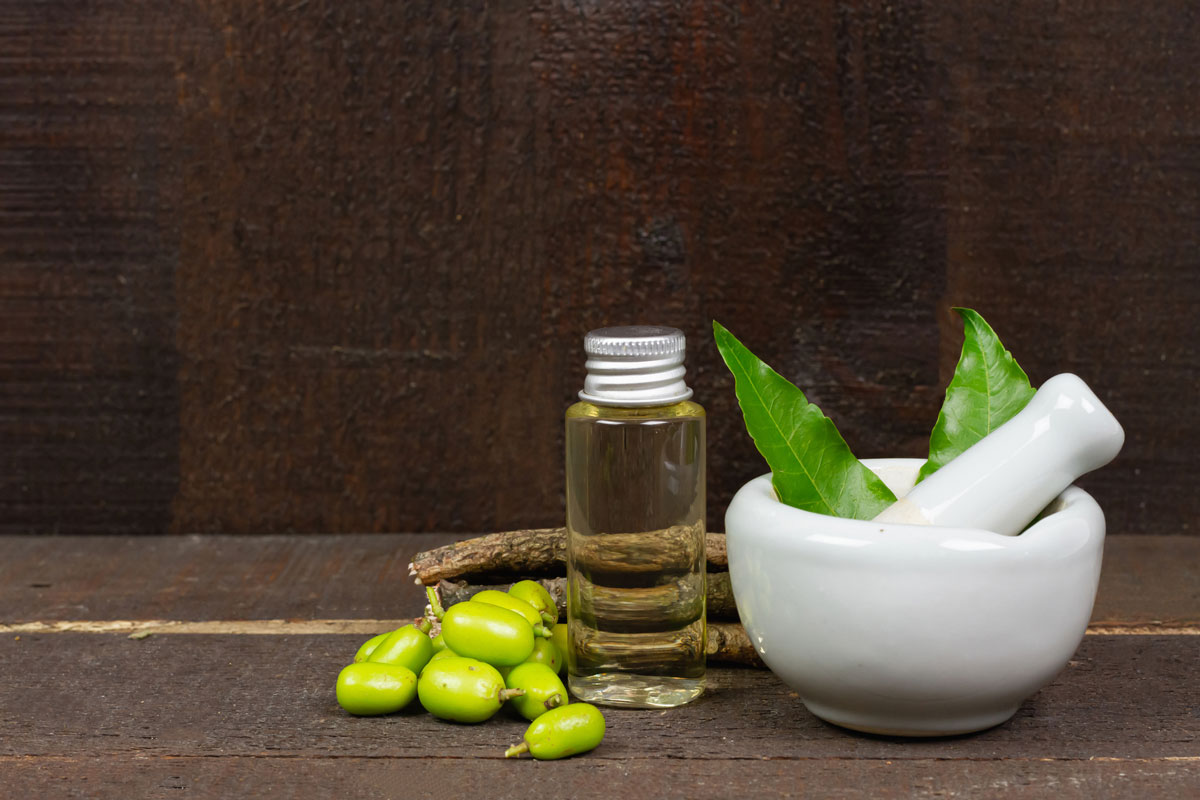
Neem trees grow in warm areas. If you have access to a neem tree, you can make your own concoction and spray the solution in your backyard or inside your home.
This method is the most organic of all since you'll be doing everything from scratch. The extract from the leaves will discourage pests from infesting your plants and home. You can mix it with other natural ingredients to increase its efficiency.
- Pick out the neem leaves from the branches and separate them.
- Prepare 5-10 cloves of garlic. Peel and crush them. Garlic is poisonous to insects, so adding them to your neem extract will increase its effectiveness.
- Put the crushed garlic on top of the separated neem leaves.
- Pour 3 liters of water into a pot. Put in the neem leaves and garlic and bring the pot to a boil.
- After 10 minutes, you should notice the water having a green-gold color.
- Turn off the heat and let it cool for 5 minutes.
- Strain the neem leaves and garlic and filter the neem and garlic extract.
- Transfer the solution into a spray bottle.
- Do a patch test, and if you notice your plants still thriving, spray the solution to your garden or in any areas that need treating.
Benefits of Neem Oil
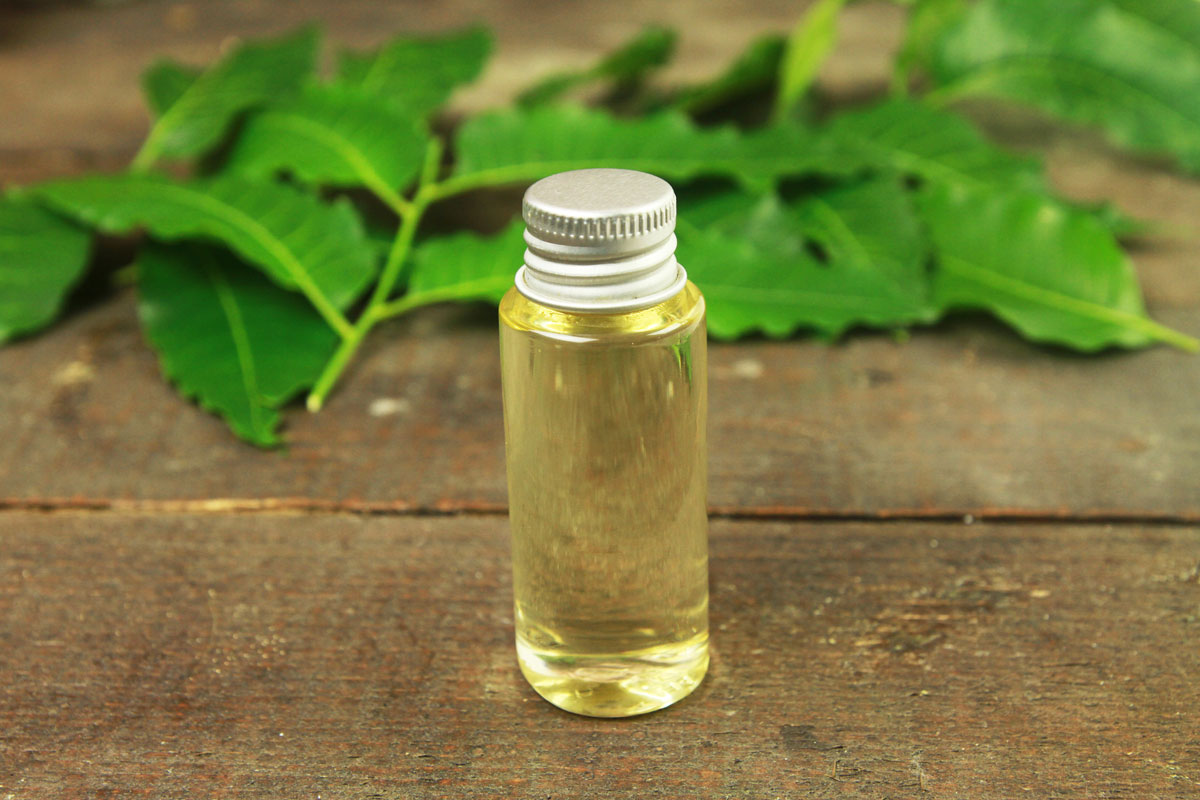
Aside from being a natural, effective, and environmentally safe pesticide, neem oil can also be used in cosmetics, toothpaste, soaps, and even pet care. It has detoxifying properties that can strengthen your immune system and digestive health which is why it can also be turned into tea.
100% Natural
However, the most popular use for neem oil is for aiding plant life. Neem oil is the safest option for growing indoor and outdoor plants since it doesn't have harmful chemicals.
Most plant growers have second thoughts about treating their plants and fruit-bearing trees with pesticides since they're concerned about the chemicals.
However, neem extracts are completely organic and do not have chemicals that can potentially be harmful.
Affects a Variety of Pests
Neem oil is effective in various species of pests. It is highly toxic to aphids, mites, white flies, scale, mealybugs, nematodes, and leafhoppers. They can also treat fungal diseases in plants such as powdery mildew, leaf spots, or scabs.
Aside from fungi and insects, neem oil can also protect your fruit trees from bacteria that cause fruit-bearing plants to wilt--just make sure to spray neem oil before the fruits and leaves start to be infected by bacteria.
Is Neem Oil Safe for Bees?
If you live near a hive, it is best not to treat your outdoor plants with neem oil as they can collect pollen with neem oil and suffocate themselves with it. You should especially avoid treating your plants with neem oil if it is in the flowering stage when bees will most likely visit.
If you don't have other alternatives and badly need to spray your plants, only spray your plants outside at dusk and dawn. There would be less chance of contaminating bees during this timeframe.
However, if you're only going to be spraying their nests outdoors and not on your plants, it can be safe for bees since they are less likely to visit other areas where they can't get pollen.
Final Thoughts
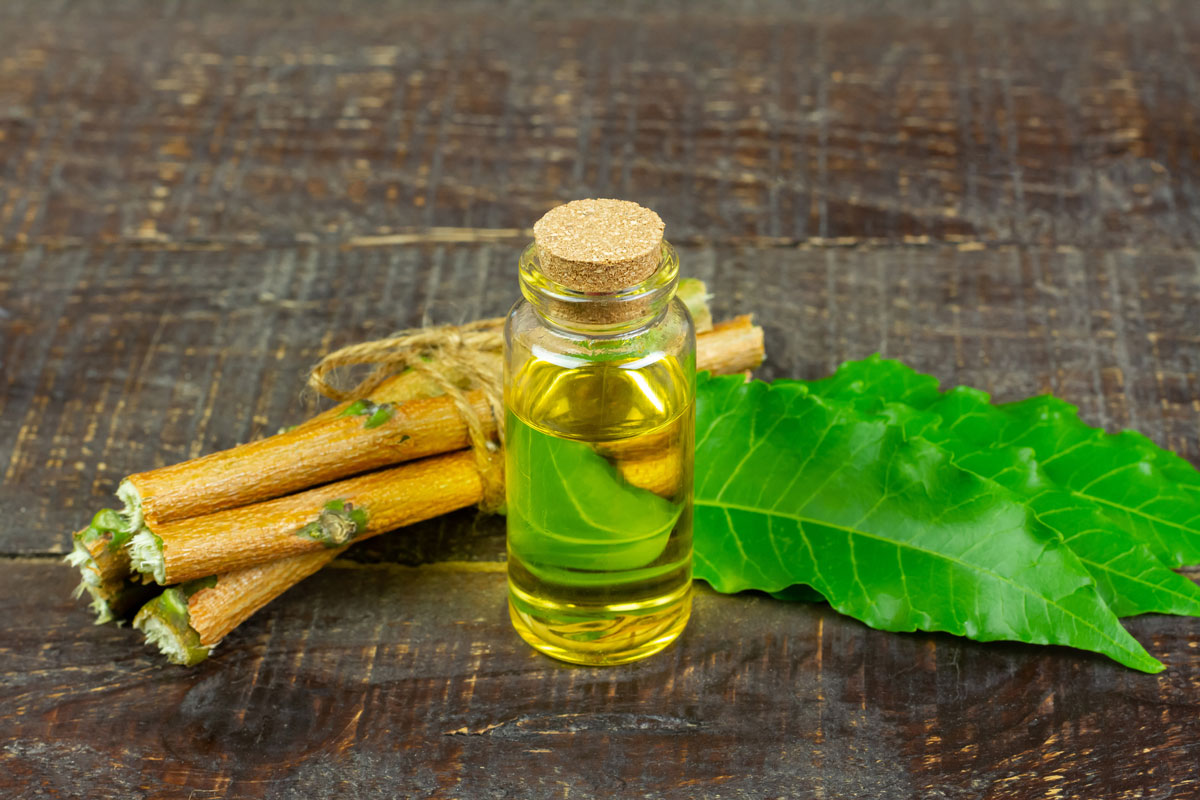
Neem oil is generally safe and has a lot of benefits, but practicing caution is still necessary to avoid harming helpful insects. Make sure to read the label and wear protective clothing when dealing with pests to avoid accidents and diseases.
If you enjoyed this article, check out "Can Bald Faced Hornets See At Night?" and "How To Use Sevin Spray On Vegetables."



